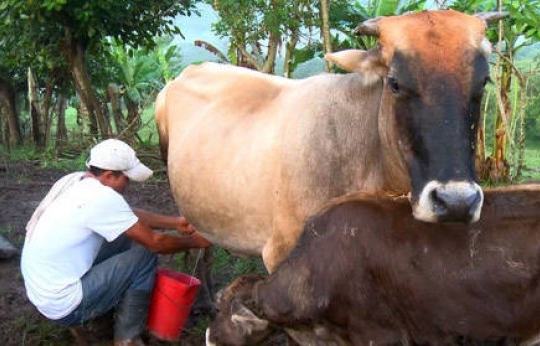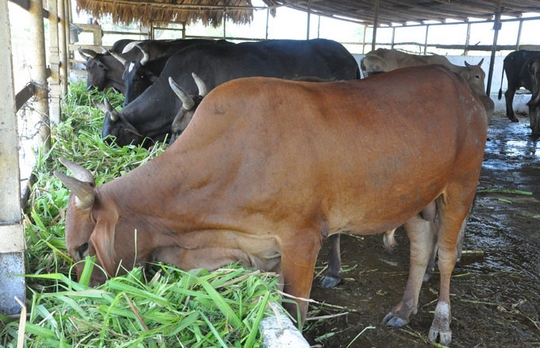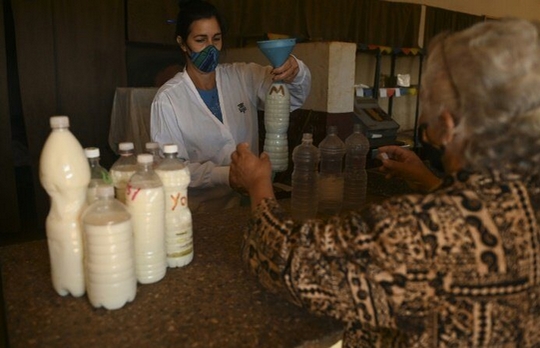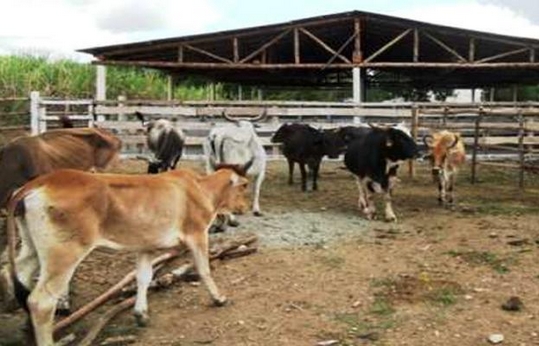FREECOLD delivers 59 solar milk tanks to Cuba
FREECOLD has delivered 59 solar milk tanks of 500 litres to Cuba through its exclusive distributor Suministros Eléctricos ERKA based in Havana.
This all stainless steel model, which complies with European (EN 13732) and American (ISO 5708) standards, is an integral part of our range of autonomous solar tanks, from the 50-litre mini-tank for small producers to the large 1000 and 2000-litre units.
The hybrid design of the systems we have designed and sold, allows the injection on the local electrical grid (in 220V but in 60Hz) of the electric surplus produced during the day by the photovoltaic modules and not consumed by the milk tanks. Nothing is lost!



The largest island in the Caribbean, Cuba has an honourable human development index (67th out of 188 according to the United Nations HDI), although the country suffers from the American embargo and a very high level of dependence on the outside world, particularly in terms of energy and food.
The country faces many challenges in a unique economic and political context. The island is now seeking to open up to foreign investors to ensure its food security or meet the growing demand for energy while orienting its energy mix towards green energies.
As a country located in the path of cyclones, it is also particularly vulnerable to the effects of climate change and highly exposed to natural disasters, as recalled by Hurricane Irma in 2017.
Under the PRODEGAN project, the Cuban state, which imports 70-80% of its food needs, seeks to promote the sustainable development of the livestock sector, and to modernise it, with the support of IFAD (International Fund for Agricultural Development, a specialised United Nations agency for food and agriculture) and AFD (Agence Française de Développement).
The production system that predominated until the 1990s, based entirely on the state sector, has gradually given way to a system that allows the development of private family farming. Today, producers’ cooperatives administer 69% of agricultural land compared to 31% for state agencies. Even though private agriculture has shown its efficiency, its development is strongly constrained by the lack of agricultural equipment and technology. The upgrading of the sector therefore involves the re-equipment of agricultural equipment and inputs and the eradication of an invasive species (the marabú) while avoiding a return to the resource-intensive mining and chemical exploitation that predominated at the end of the 1980s. The challenge for the livestock sector is to aim for a sustainable intensification of production, as well as an improvement in the productivity and safety of the downstream sectors (dairies and slaughterhouses).
The main objective of this project, which covers nearly 400,000 ha in the province of Camagüey, is to revive milk and meat production through the re-equipment of 105 cooperatives, 15 service providers and 2 agro-industries (a dairy and a slaughterhouse), for the benefit of 11,500 farms (35,000 people).

The expected increase in production will
- boost the economic and social activities of this region in the centre-east of the island;
- reduce the country’s milk imports;
- promote the inclusion of women and young people as well as the essential role of the private sector in agriculture.
(Sources : AFD Agence Française de Développement, 2022)

